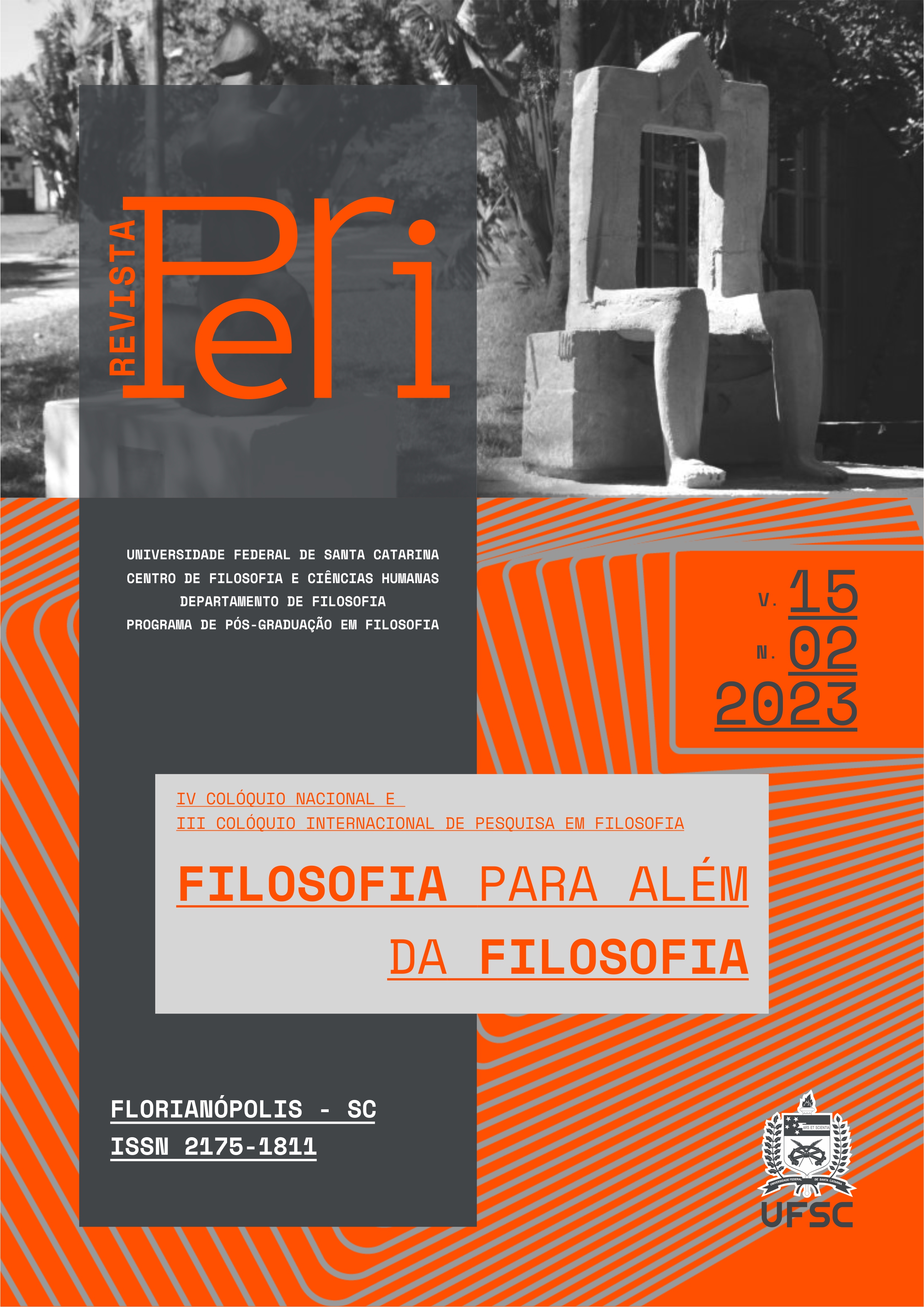Arthur Schopenhauer e o medo da morte
Palavras-chave:
angústia, medo da morte, objetividade da vontade, Schopenhauer, sofrimentoResumo
Tudo o que se conhece no mundo fenomênico são formas de objetivação da Vontade. A Vontade é tratada por Schopenhauer como cega, arbitrária, tirânica e brutal, sendo responsável por todo o sofrimento da vida. Dentre os diversos medos e temores existenciais, a morte é o maior entre eles, a ideia de finitude é o que mais aterroriza o ser humano. Sabendo disso, Arthur Schopenhauer desenvolveu um pensamento filosófico acerca da morte que fornece uma resposta possível para a referida aflição comum à humanidade. Morte e vida seriam partições do mesmo ciclo no qual existem dois extremos de não-ser: o antes da vida e o pós-morte. Se a vida e a morte formam uma unidade, o que faz o indivíduo temer a morte, porém, não a vida (na mesma intensidade)? O pensamento schopenhaueriano mostra que deveriam da mesma forma temer a vida, visto que ela pode ser ainda pior. A morte para o sujeito é apenas um cessar da consciência, que é somente resultado da vida orgânica e não a causa dela. A falta de consciência da morte e a mera consciência do presente (nunc stans) tem como consequências angústias e frustrações de não conseguir alcançar a eternidade. Sendo assim, o presente trabalho problematiza a “filosofia da morte” em Schopenhauer e a relação com a indestrutibilidade do nosso ser-em-si. Busca indicar possibilidades de amenização do medo da morte através de duas vias: a do autoconhecimento enquanto Vontade (metafísico/conhecimento) e a da busca de uma vida mais suportável e menos infeliz possível (eudemonológica). Assim, percebendo-se enquanto constituinte de um ser-em-si que é impossível de ser aniquilado com a morte, ou aceitando a impossibilidade de uma vida ausente de dores, Schopenhauer mostra vias diretas para a possível superação e amenização do medo de morrer – e de diversos outros medos existenciais.
Referências
BRUM, José Thomaz. O pessimismo e suas vontades: Schopenhauer e Nietzsche. Rio de Janeiro: Rocco, 1998.
DEBONA, Vilmar. A outra face do pessimismo: caráter, ação e sabedoria de vida em Schopenhauer. São Paulo: Edições Loyola, 2020.
SALVIANO, Jarlee. A Metafísica da Morte em Schopenhauer. Ethic@ N. 2, V. 11, 2012, p. 187-197.
SCHOPENHAUER, Arthur. Aforismos para a Sabedoria de Vida. Trad Jair Barboza. 4 ed. São Paulo: WMF Martins Fontes, 2016.
SCHOPENHAUER, Arthur. O Mundo como Vontade e Representação - Tomo I. 2 ed. São Paulo: UNESP, 2015.
SCHOPENHAUER, Arthur. O Mundo como Vontade e Representação - Tomo II. 2 ed. São Paulo: UNESP, 2015.
SCHOPENHAUER, Arthur. Sobre o Fundamento da moral. Trad Maria Lucia Cacciola. São Paulo: Martins Fontes, 2001 (Coleção Clássicos).
SCHOPENHAUER, Arthur. The Two Fundamental Problems of Ethics. New York: OUP Oxford, 2010.
SCHOPENHAUER, Arthur. The World as Will and Representation. Vol 1. New York: Dover Publications, 1966.
SCHOPENHAUER, Arthur. The World as Will and Representation. Vol 2. New York: Dover Publications, 1966.
Downloads
Publicado
Edição
Seção
Licença
Copyright (c) 2023 Milene Lobato

Este trabalho está licenciado sob uma licença Creative Commons Attribution-NonCommercial-ShareAlike 4.0 International License.
1. Autores mantém os direitos autorais e concedem à revista o direito de primeira publicação, com o trabalho simultaneamente licenciado sob a Creative Commons Attribution License que permite o compartilhamento do trabalho com reconhecimento da autoria do trabalho e publicação inicial nesta revista.
2. Autores têm autorização para assumir contratos adicionais separadamente, para distribuição não-exclusiva da versão do trabalho publicada nesta revista (ex.: publicar em repositório institucional ou como capítulo de livro), com reconhecimento de autoria e publicação inicial nesta revista.
3. Autores têm permissão e são estimulados a publicar e distribuir seu trabalho online (ex.: em repositórios institucionais ou na sua página pessoal) a qualquer ponto antes ou durante o processo editorial, já que isso pode gerar alterações produtivas, bem como aumentar o impacto e a citação do trabalho publicado (Veja O Efeito do Acesso Livre).


